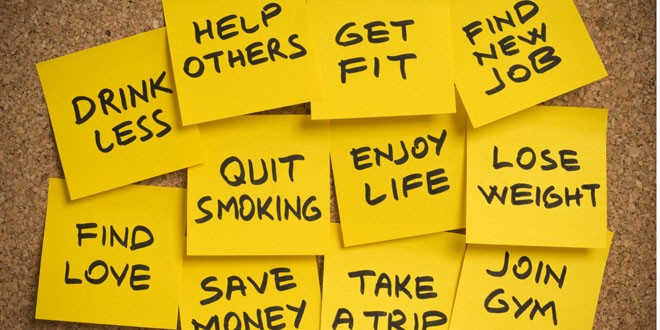Spring is here, and the year is one-quarter over. So, how are you doing with your New Year’s resolutions - and specifically your diabetes physical activity plan? Okay, calm down, I’m sorry I asked … unless, of course, it’s going great! Statistically speaking, most people who make New Year’s resolutions don’t follow through on them. That may be why many people choose not to take part in the tradition. But I think the idea behind it is alluring: acknowledge what did not work for you in the past, accept it, and then move on. Now you can make a plan for it to be better in the future. However, this process doesn’t have to happen at the start of the New Year, it can happen any time. Why not think about it now?
Results from the Canadian Health Measures Survey indicate that about one in five adults achieved the recommended 150 minutes per week of moderate-to-vigorous physical activity set out by both the Canadian Society for Exercise Physiology guidelines and Diabetes Canada clinical practice guidelines. This suggests to me that people are not setting exercise goals, or they’re not meeting their goals. Or maybe they’re just not aware of the current recommendations.
For healthcare providers, these statistics are very discouraging. And they’re discouraging for me personally, as a lover of all things fitness-related. But I don’t want to talk about all the reasons why people don’t exercise, or why they don’t exercise enough. I’d rather talk about how to turn this around.
Here are a few tips that may help you keep your exercise resolutions.
Own it: whose goal is it anyway?
Your doctor suggests that you go for a walk three times per week. Your spouse says you need to start exercising. They’re both concerned about your health; however, sometimes when someone makes a suggestion (i.e. tells you what to do!), it’s common to feel that your freedom is being threatened, which motivates you to regain choice and control by doing exactly the opposite. It is very unlikely that someone will be convinced to meet exercise guidelines when they are nagged, bribed, threatened, given predictions of disaster, or otherwise manipulated. Goals that are personally satisfying are naturally motivating. Whatever goal you set should be your goal. You might just need some help defining it.
Willpower
Whether you are not exercising at all, or you feel that you’re not exercising enough, many people feel that they just don’t have the willpower to make it happen. Willpower is that magical force we all call upon when we are trying to do something that we don’t really want to do. But, really, any act that requires self-control requires willpower. During the day, our willpower is put to the test as we struggle to resist temptations: for example, sleeping late, eating unhealthily, surfing the internet when you should be doing work, impulsively spending money, etc., etc. If we could actually limit our choices during the day, we could conserve our willpower to help reach our goals. The key here is planning. Plan as many things as you can: your meals, your wardrobe and your exercise. If you think ‘planning' sounds boring, then call it ‘strategizing’ instead!
Make it automatic
The constant debate regarding ‘Should I exercise or should I not?’ can be mentally exhausting. However, when something happens on a routine basis, it takes away the thought and increases the chance of success. According to Dr. Heidi Grant Halvorson, a professor at Columbia University who studies the science of motivation, “Deciding in advance when and where you will take specific actions can double or triple your chances for success.” Spin class every Tuesday and Thursday at 7:00 pm? Done!
Be prepared
‘If-then planning’ is a proven strategy that can help when circumstances prevent you from meeting your goal. I suppose you could call this a ‘plan B’. This is such a simple, but powerful, tool. If my meeting runs late and I cannot get to the gym by 7:00 pm, then I will go to spin class on Saturday morning at 10:00 am. By anticipating obstacles, you will be prepared to tackle them without being thrown off track.
Stress less
Nothing weakens our resolve and our self-control more than stress. If you can remove yourself from a stressful situation and take a break, it may help clear your head and change your perspective. This is actually a time when spontaneous exercise is encouraged. If you head out for a run, a bike ride or just a quick walk, chances are that when you return you will feel more ready to face your challenges.
The best laid plans
You may have devised a clear and reasonable exercise plan, knowing that a plan is crucial for success. However, if you don’t like the activity, you likely won’t do it. Here’s my example: I don’t like to dust my house. My kitchen and bathrooms are spotless, but the rest, not so much. It’s not because I don’t have the time to dust; it’s because I don’t make the time. But when I do clean from top to bottom, I have such a feeling of satisfaction and accomplishment. However, it doesn’t last. Why? Because I’d rather be doing something else. I’d rather be exercising. Now, if I did clean on a regular basis, I could likely call that exercise. But I don’t do it enough, because I don’t like to do it. You need to want to do something and, for that to happen, you need to like it. There are so many activities you can try. Take the time and do some research. Your local community centre is a great place to start. Once you find an activity you like, it won’t seem like a chore (like dusting!).
Keep track
Working toward any goal requires honest and regular monitoring of your progress. Not only does this provide you with information for potentially modifying your strategies, but it can also build your confidence and sustain your motivation when you see yourself being successful! If you want to keep track of your daily exercise, check out the Physical Activity Tracker in the diabetes self-management tools area on this website.
 Diabetes Care Community Learn, connect and care
Diabetes Care Community Learn, connect and care




